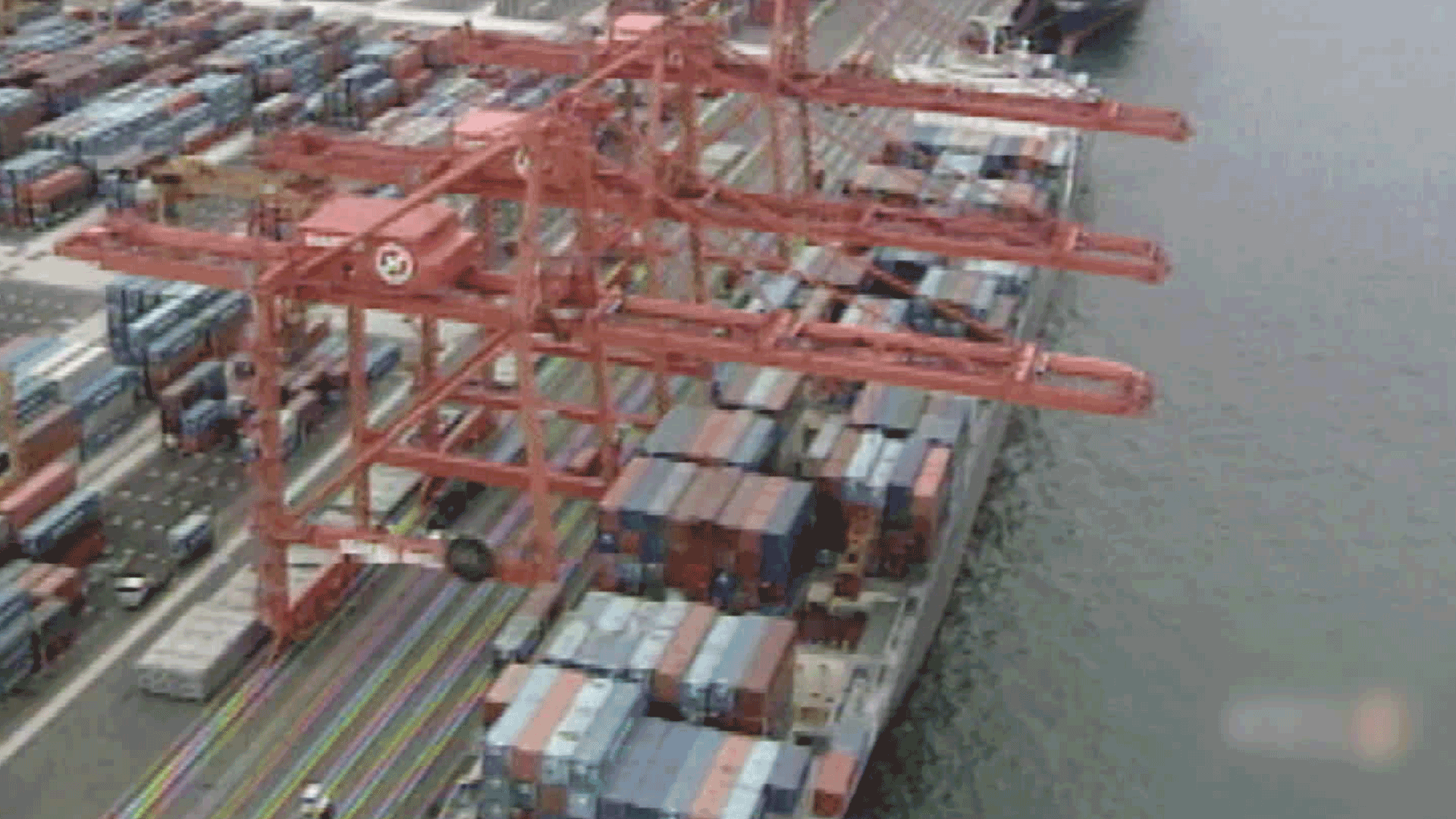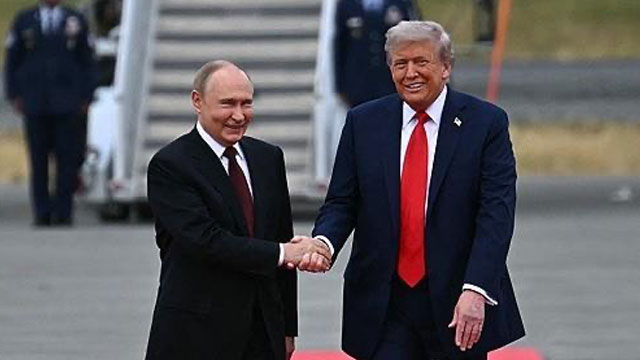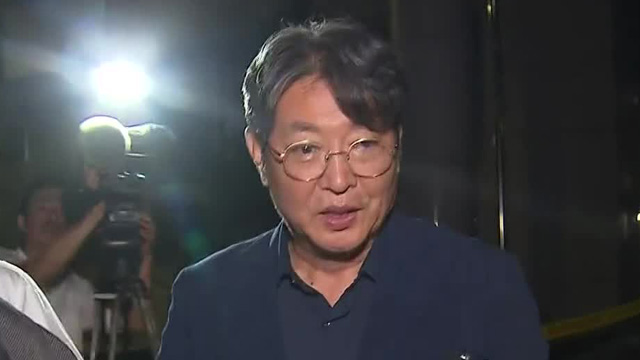[Anchor]
Economically, Korea and Japan have now developed into partners that compete, cooperate, and complement each other.
Lee Do-yoon reports.
[Report]
In the days when we imported rice cookers and Sony Walkmans from Japan, Korea exported wigs and parts in return.
By the 2000s, Korea–Japan trade had shifted into a relationship of “mutual complementarity.”
That changed in 2019 with Japan’s trade restrictions on “materials, parts, and equipment.”
[Seko Hiroshige/Then Japanese Minister of Economy, Trade and Industry: "South Korea was the only country given preferential treatment, but we have decided to withdraw it…."]
Semiconductor production was disrupted, prompting the head of Samsung Electronics to rush to Japan, while Japanese companies scrambled to find indirect export routes to Korea.
Six years later, Korea’s dependence on Japan for “materials, parts, and equipment” has decreased, but Japan still remains the second-largest source.
[Kim Jae-young/CEO, Semiconductor Distribution Company: "Many hardware engineers tend to design with Japanese products and components in mind."]
More Japanese companies are also increasing investment in Korea, including building factories and production lines.
This is because both countries can be stable partners in terms of technology and scale.
[Jang Sang-sik/Head, Trade & Commerce Research Institute, Korea International Trade Association: "Recently, Korea’s exports to Japan of petroleum products, steel, and semiconductors have increased significantly, creating a mutually complementary trade structure where both sides exchange what they need."]
If U.S.-driven protectionism intensifies, the need for cooperation between Korean and Japanese companies—particularly in advanced industries—could grow further.
[Jang Ha-rim/Team Leader, Bio Startup: "If we take Korea’s domestic technologies and enter the Japanese market, we can expect a better reception and operate more broadly in a larger market."]
Over 60 years since the normalization of diplomatic relations, bilateral trade has grown 350-fold.
From pursuer to partner—but Korea has never once escaped a trade deficit with Japan.
This is Lee Do-yoon, KBS News.
Economically, Korea and Japan have now developed into partners that compete, cooperate, and complement each other.
Lee Do-yoon reports.
[Report]
In the days when we imported rice cookers and Sony Walkmans from Japan, Korea exported wigs and parts in return.
By the 2000s, Korea–Japan trade had shifted into a relationship of “mutual complementarity.”
That changed in 2019 with Japan’s trade restrictions on “materials, parts, and equipment.”
[Seko Hiroshige/Then Japanese Minister of Economy, Trade and Industry: "South Korea was the only country given preferential treatment, but we have decided to withdraw it…."]
Semiconductor production was disrupted, prompting the head of Samsung Electronics to rush to Japan, while Japanese companies scrambled to find indirect export routes to Korea.
Six years later, Korea’s dependence on Japan for “materials, parts, and equipment” has decreased, but Japan still remains the second-largest source.
[Kim Jae-young/CEO, Semiconductor Distribution Company: "Many hardware engineers tend to design with Japanese products and components in mind."]
More Japanese companies are also increasing investment in Korea, including building factories and production lines.
This is because both countries can be stable partners in terms of technology and scale.
[Jang Sang-sik/Head, Trade & Commerce Research Institute, Korea International Trade Association: "Recently, Korea’s exports to Japan of petroleum products, steel, and semiconductors have increased significantly, creating a mutually complementary trade structure where both sides exchange what they need."]
If U.S.-driven protectionism intensifies, the need for cooperation between Korean and Japanese companies—particularly in advanced industries—could grow further.
[Jang Ha-rim/Team Leader, Bio Startup: "If we take Korea’s domestic technologies and enter the Japanese market, we can expect a better reception and operate more broadly in a larger market."]
Over 60 years since the normalization of diplomatic relations, bilateral trade has grown 350-fold.
From pursuer to partner—but Korea has never once escaped a trade deficit with Japan.
This is Lee Do-yoon, KBS News.
■ 제보하기
▷ 카카오톡 : 'KBS제보' 검색, 채널 추가
▷ 전화 : 02-781-1234, 4444
▷ 이메일 : kbs1234@kbs.co.kr
▷ 유튜브, 네이버, 카카오에서도 KBS뉴스를 구독해주세요!
- S. Korea, Japan trade ties
-
- 입력 2025-08-15 23:56:49

[Anchor]
Economically, Korea and Japan have now developed into partners that compete, cooperate, and complement each other.
Lee Do-yoon reports.
[Report]
In the days when we imported rice cookers and Sony Walkmans from Japan, Korea exported wigs and parts in return.
By the 2000s, Korea–Japan trade had shifted into a relationship of “mutual complementarity.”
That changed in 2019 with Japan’s trade restrictions on “materials, parts, and equipment.”
[Seko Hiroshige/Then Japanese Minister of Economy, Trade and Industry: "South Korea was the only country given preferential treatment, but we have decided to withdraw it…."]
Semiconductor production was disrupted, prompting the head of Samsung Electronics to rush to Japan, while Japanese companies scrambled to find indirect export routes to Korea.
Six years later, Korea’s dependence on Japan for “materials, parts, and equipment” has decreased, but Japan still remains the second-largest source.
[Kim Jae-young/CEO, Semiconductor Distribution Company: "Many hardware engineers tend to design with Japanese products and components in mind."]
More Japanese companies are also increasing investment in Korea, including building factories and production lines.
This is because both countries can be stable partners in terms of technology and scale.
[Jang Sang-sik/Head, Trade & Commerce Research Institute, Korea International Trade Association: "Recently, Korea’s exports to Japan of petroleum products, steel, and semiconductors have increased significantly, creating a mutually complementary trade structure where both sides exchange what they need."]
If U.S.-driven protectionism intensifies, the need for cooperation between Korean and Japanese companies—particularly in advanced industries—could grow further.
[Jang Ha-rim/Team Leader, Bio Startup: "If we take Korea’s domestic technologies and enter the Japanese market, we can expect a better reception and operate more broadly in a larger market."]
Over 60 years since the normalization of diplomatic relations, bilateral trade has grown 350-fold.
From pursuer to partner—but Korea has never once escaped a trade deficit with Japan.
This is Lee Do-yoon, KBS News.
Economically, Korea and Japan have now developed into partners that compete, cooperate, and complement each other.
Lee Do-yoon reports.
[Report]
In the days when we imported rice cookers and Sony Walkmans from Japan, Korea exported wigs and parts in return.
By the 2000s, Korea–Japan trade had shifted into a relationship of “mutual complementarity.”
That changed in 2019 with Japan’s trade restrictions on “materials, parts, and equipment.”
[Seko Hiroshige/Then Japanese Minister of Economy, Trade and Industry: "South Korea was the only country given preferential treatment, but we have decided to withdraw it…."]
Semiconductor production was disrupted, prompting the head of Samsung Electronics to rush to Japan, while Japanese companies scrambled to find indirect export routes to Korea.
Six years later, Korea’s dependence on Japan for “materials, parts, and equipment” has decreased, but Japan still remains the second-largest source.
[Kim Jae-young/CEO, Semiconductor Distribution Company: "Many hardware engineers tend to design with Japanese products and components in mind."]
More Japanese companies are also increasing investment in Korea, including building factories and production lines.
This is because both countries can be stable partners in terms of technology and scale.
[Jang Sang-sik/Head, Trade & Commerce Research Institute, Korea International Trade Association: "Recently, Korea’s exports to Japan of petroleum products, steel, and semiconductors have increased significantly, creating a mutually complementary trade structure where both sides exchange what they need."]
If U.S.-driven protectionism intensifies, the need for cooperation between Korean and Japanese companies—particularly in advanced industries—could grow further.
[Jang Ha-rim/Team Leader, Bio Startup: "If we take Korea’s domestic technologies and enter the Japanese market, we can expect a better reception and operate more broadly in a larger market."]
Over 60 years since the normalization of diplomatic relations, bilateral trade has grown 350-fold.
From pursuer to partner—but Korea has never once escaped a trade deficit with Japan.
This is Lee Do-yoon, KBS News.
-
-

이도윤 기자 dobby@kbs.co.kr
이도윤 기자의 기사 모음
-
이 기사가 좋으셨다면
-
좋아요
0
-
응원해요
0
-
후속 원해요
0















이 기사에 대한 의견을 남겨주세요.